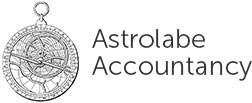COVID-19 Business Update – 19 November 2020
 Welcome back to our Weekly Digest. We hope you and your family are safe and doing well. Read on for this week’s updates and some ideas that will help us all overcome this crisis.
Welcome back to our Weekly Digest. We hope you and your family are safe and doing well. Read on for this week’s updates and some ideas that will help us all overcome this crisis.
6-Day Lockdown Ordered in South Australia
The state of South Australia will begin a 6-day lockdown at midnight on Wednesday, with schools, universities, bars and cafes closed.
Only one person from each household may leave home each day, and only for specific reasons. Under this latest lockdown, wearing masks is mandatory and outdoor exercise is banned. Aged-care facilities are locked down, and most factories will close. Weddings and funerals are also on hold.
This comes after a cluster of new COVID-19 cases grew to 22.
Financial Help and Free Mentorship For Online Businesses
Micro and small business operators can get financial assistance and free mentoring through a government-funded programme called New Enterprise Incentive Scheme (NEIS).
New entrepreneurs can access free mentoring for the first 12 months of participation in the program. They receive financial assistance for up to the first 39 weeks of business operation.
Existing micro-businesses impacted by COVID-19 can access NEIS if they need help to keep their businesses running.
Also, people with part-time contracts, who are working up to 25 hours per week, can access NEIS if they are looking to start their own business.
You can learn more about this government assistance here. Alternatively, you can contact us so we can also help you evaluate other funding and business support options you may be eligible for.
Australian Shares at 9-Month High
Australian shares edged higher on Wednesday to hit their highest in nearly nine months after the central bank governor said the country was “on the road back”.
The S&P/ASX 200 index rose 0.5 per cent to 6,532 points by 2353 GMT, hitting its highest level since Feb 28.
Employers May Need to Give Employees More Super Choices
A change to the law means that you may need to offer employees more choice in relation to the super fund that you pay their compulsory superannuation contributions to.
All workplace determinations and enterprise agreements made on or after 1 January 2021 must give employees the right to choose their super fund.
Once a new determination or agreement is in place, you’ll need to give a Superannuation standard choice form to:
- existing employees who request to choose their super fund
- all new employees.
You must then pay employees’ compulsory super to their nominated fund. We will keep you informed of the updates. Please feel free to chat to us if you have any questions.
Upcoming Key Dates and Deadlines
Please keep in mind these key dates:
- 23 November 2020 – October monthly BAS due
- 30 November 2020 – September quarter SG charge statement due
Business Growth Fund Launches
The government-backed Australian Business Growth Fund has launched to ensure small- and medium-sized businesses have access to equity finance, as the country recovers from the COVID-19 crisis.
Initially, the Australian Business Growth Fund will have an initial investment capacity of $540 million, with a goal to grow the fund to $1 billion.
The government is making a $100-million investment, while major banks including ANZ, Commonwealth Bank, NAB, and Westpac have also committed $100 million each.
The fund will allow Australian businesses to apply for long-term equity capital investments between $5 million and $15 million, where they have generated annual revenue between $2 million and $100 million and can demonstrate three years of revenue growth and profitability.
If you need help in assessing your eligibility or to consider other financing options, don’t hesitate to contact us for guidance.
$800m Digital Business Plan to Drive Economic Recovery
The Australian Government has announced a Digital Business plan to enable businesses to take advantage of digital technologies to grow their businesses and create jobs in the wake of COVID-19. PM Scott Morrison and Treasurer Josh Frydenberg announced the almost $800 million scheme on Tuesday that will facilitate doing more business online in a post-pandemic world.
Under the plan, the rollout of Australia’s 5G network will be accelerated, the digital capacity of the agriculture, manufacturing, mining, logistics and financial services will be boosted, and Australians will be able to start a new business in 15 minutes using online government services.
If you need our expert advice on how you can start a business or pivot to adapt to the crisis, don’t hesitate to message us.
Major Overhaul to Bankruptcy Laws
After the major changes to the JobSeeker and JobKeeper programs, Australia’s bankruptcy laws have been overhauled, throwing a lifeline to struggling businesses amid the COVID-19 crisis.
Under the proposed changes, businesses with liabilities of less than $1 million will be able to keep operating while they come up with a debt restructuring plan, rather than be placed in the hands of administrators.
The new rules which will become effective from 1 January 2021 follows the government’s decision earlier this month to extend its temporary insolvency and bankruptcy protection rules until the end of 2020.
Supporting Apprentices and Trainees Wage Subsidy Extended
The Supporting Apprentices and Trainees wage subsidy has been expanded and extended to include medium-sized businesses who had an eligible apprentice in place from 1 July 2020.
Eligible employers will receive a wage subsidy of up to 50% of the wages paid until 31 March 2021 worth up to $7,000 per quarter, per eligible apprentice or trainee, to manage their cash flow challenges. Subsidies will also be available to any new employer who re-engages an eligible apprentice that was displaced by an eligible small- or medium-sized business.
This may be of particular interest to employers who are not eligible for the JobKeeper extension. For professional assistance in applying for this wage subsidy or any other funding assistance, feel free to contact us.
Government-backed COVID-19 Loans Extended
The government is extending its small business COVID-19 loans scheme until June 2021. If you need help to access these loans or you want to find out if you are eligible, don’t hesitate to drop us a message.
Customers Not Paying? Here are Tips to Prevent Non-Payments
At some point, businesses will face the inevitable non-paying customer problem. Whether it’s a regular customer who continuously misses due dates or a one-timer who completely ghosts you, dealing with non-paying clients can be stressful and frustrating.
Here are some tips to make sure they don’t miss a payment deadline:
- Always discuss payment terms upfront.
Detail all projected costs, including instalment fees and payment deadlines right from the start of the engagement. - Provide multiple payment options.
The more flexible your business is in terms of payment, the easier it will be for customers to send their payments across. Accept digital payments and credit cards to accommodate those who prefer paying with these options instead of cash. - Send invoices immediately.
Give your customers enough time to pay you by sending invoices and billing them upfront. - Take time to follow-up on payments.
Don’t hesitate to reach out to customers who haven’t paid you yet. Some people genuinely forget about due dates and simply need to be reminded. - Work with a factoring company.
A factoring company will pay you immediately following an invoice, using it as collateral. When the customer themselves pay the invoice, the transaction will be closed.
Do you need help chasing payments and keeping your invoices on track? Get in touch with us today and let’s discuss how we can help you.
Get in touch
Contact us if you have any questions.
